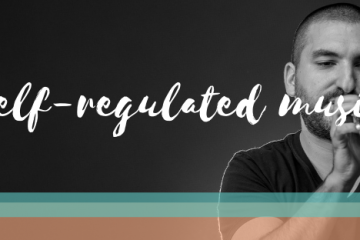Feeling stressed out? You’re not alone… That’s why this article is designed to help you recognise, manage and reduce stress in your world.
Did you know?
- 85% of UK adults admit to experiencing stress regularly
- 71.1% of musicians believe they have suffered from panic attacks and/or high levels of anxiety*
- 68.5% of musicians report that they have suffered from depression*
- The most common cause of stress is money, followed by work and health
- Stress alters the neuro-chemical makeup of the body
- Chinese stress balls (Baoding balls) are thought to relieve stress because they touch pressure points on the hand
What causes stress for musicians?
Wonderful though it can be, the music industry exposes us to stressful situations (stressors) and highs and lows that no other industry would. Whether you perform at weddings, write music, or perform to millions of people, a career in music is tough.
Musicians have stressors that others may not ever experience. E.g. feeling anxious about performances and auditions, getting people to come to your shows, competing for work with other musicians and friends, feeling overwhelmed with a huge and varied task list, sustaining creative flow, too many (or too few) gigs, dealing with unstable finances and nurturing healthy relationships whilst working anti-social hours.
Some musicians struggle with emotional and behavioural challenges as well (e.g. self-esteem, resilience, conflict, work life balance, communication etc.) and this can make you more vulnerable to stress.
Why do we feel stress?
When you experience stressful situations or threats, hormones are released into your bloodstream. These hormones set off a chain of reactions that get your mind and body ready to either fight or flee the stressful situation. The primary function is to keep you alive and safe. This is why stress makes you more alert – because it triggers your fight or flight response.
You can’t stop this fight or flight response entirely and you wouldn’t want to… This response is your body ensuring you’re alert and ready to deal with any potential danger. Imagine walking down a dark and abandoned street on your own late at night, you’ll feel stressed out for good reason.
So what CAN you control?
You can become aware of how you experience stress. You can understand what causes you to become stressed (your stressors), put healthy strategies into place to manage the stress you’re feeling. You can also begin to appreciate the additional focus and energy a little bit of pressure gives you in certain situations.
Dr Karl Albrecht is an innovator in the development of stress-reduction training. He defined the four most common types of stress
- Time stress (worrying about time or lack of time)
- Anticipatory stress (worrying about future situations, real or imagined like a future performance you’re preparing for)
- Situational stress (worrying about a scary situation that crops up in the moment and you can’t control like forgetting your words mid-song on stage)
- Encounter stress (worrying about other people like a meeting with a challenging booking agent or promoter)
Is all stress bad?
Some stress can be positive. Research shows that a reasonable level of stress makes us perform better in certain situations (such as auditions). Stress can also be exciting if experienced in a suitably adrenaline charged situation (e.g. performing on a big stage, riding a rollercoaster, jumping out of a plane). The Mental Health Foundation says that stress is only healthy, however, if it is short-lived. Excessive or prolonged stress can lead to illness and physical and emotional exhaustion.
What does stress look like?
There are many signs and symptoms of feeling stressed, we’ve noted a few here but ‘Mind’ also have a full list of signs of stress and tons of additional useful information that you can take a look at.
- Physical: shaking, sweating, increased heart rate, brain working overtime, flushed (or pale) skin, problems sleeping, tired all the time, headaches.
- Emotional: irritable, aggressive or impatient, overburdened, anxious, nervous, worried, neglected or lonely.
- Behavioural: difficulty making decisions, worrying, biting nails, unable to concentrate, overuse of alcohol or drugs, restless and tearful.
How can you reduce stress?
Stress is a problem that can be solved in many different ways; because each of the stressors you experience could have a unique solution. Start to tackle your stress using the following 3 step process:
- Explore and understand your stressors. What triggers a stress response in you?
- Try to sort your stressors into the four sections that Dr Karl Albrecht highlighted to give yourself a bit more context to work with.
- Put some actions in place to manage that stress now, and in the future.
Remember… Different solutions work for different people and different types of stress. But there are some generic things you can do to manage and reduce the stress that you’re feeling. We’ve shared some of those with you here:
- Look after your body: exercise, relax your muscles and eat well
- Build your time management skills and prioritise your workload
- Spend time imagining success and focusing on the desired outcome
- Breathe. Slow down. You could even try meditation as well
- Increase your self-awareness and learn to manage your emotions
- Go easy on yourself… Accept that you’re human, and remember to laugh
- Talk about what’s going on and spend time working on your people skills
- Prioritise your wellbeing. Make time for YOU as well as work
- Take on our 30 day ‘less stress challenge’ pledging to take just one small, easy, practical step every day to reduce stress in your world
These skills will support you in the moment but are also good skills to learn to prevent stress in the future.
If you feel like you need more personal support, then sign up for individual 121 coaching or one of our upcoming workshops to learn some skills that will really help you to control the stress you experience.
There are tons of online resources you can access for top tips and more detail on managing stress. Here are a few useful links for you to review:
IMPORTANT: These tips are for guidance only and whilst they may support you if you’re experiencing stressful situations, they can’t be classed as medical advice. If you’ve tried self-help methods and they aren’t working, you’re suffering from stress related illness or your symptoms are severe, go to see your medical practitioner. If you live in England, you can get free psychological therapies like cognitive behavioural therapy (CBT) on the NHS. You don’t need a referral from your GP. You can refer yourself directly to a psychological therapies service.
We’d love to know how you keep your personal stress levels in check, what works for you?
If you’ve enjoyed this article then please like, comment and share with others you feel could benefit.



